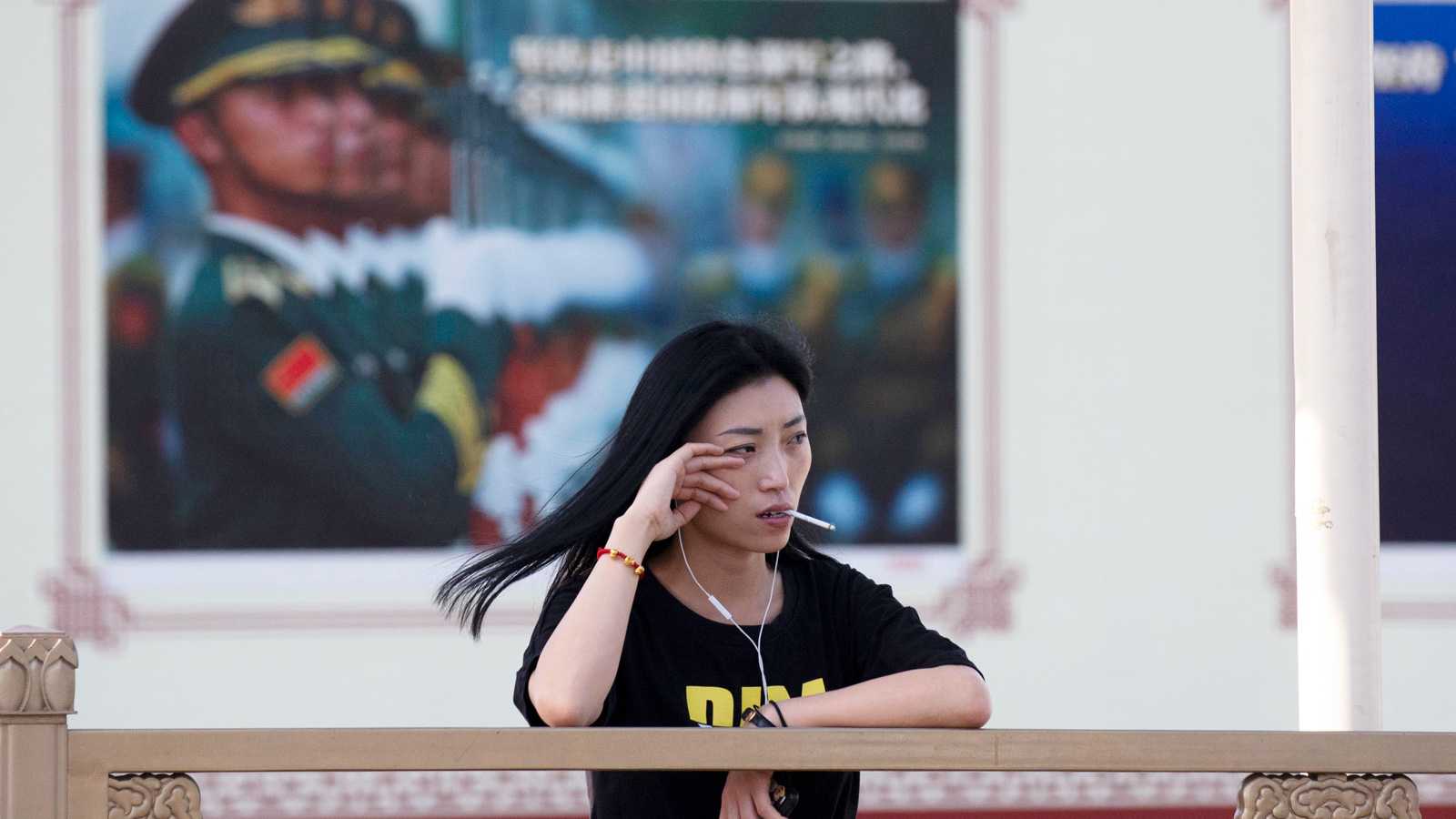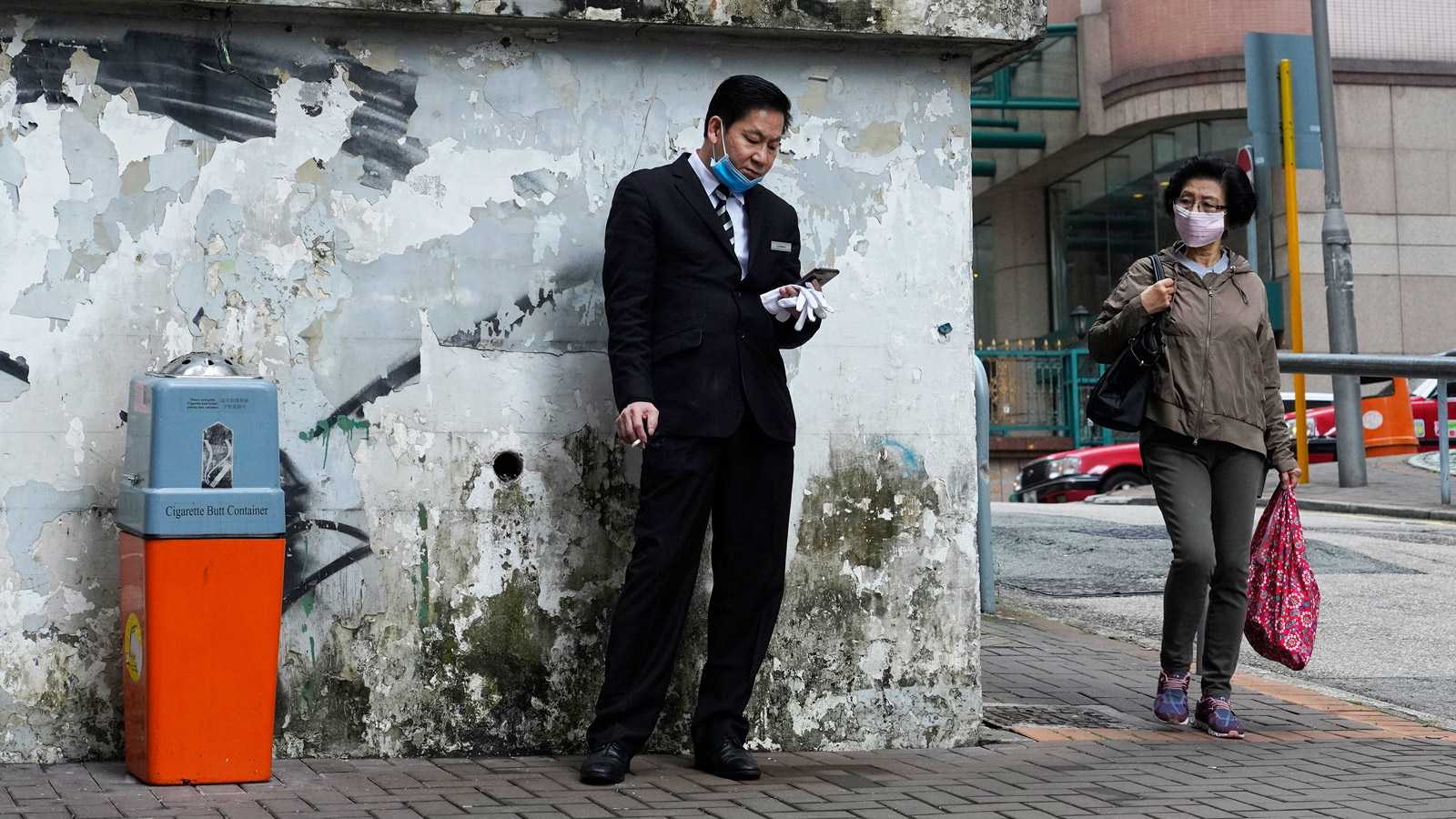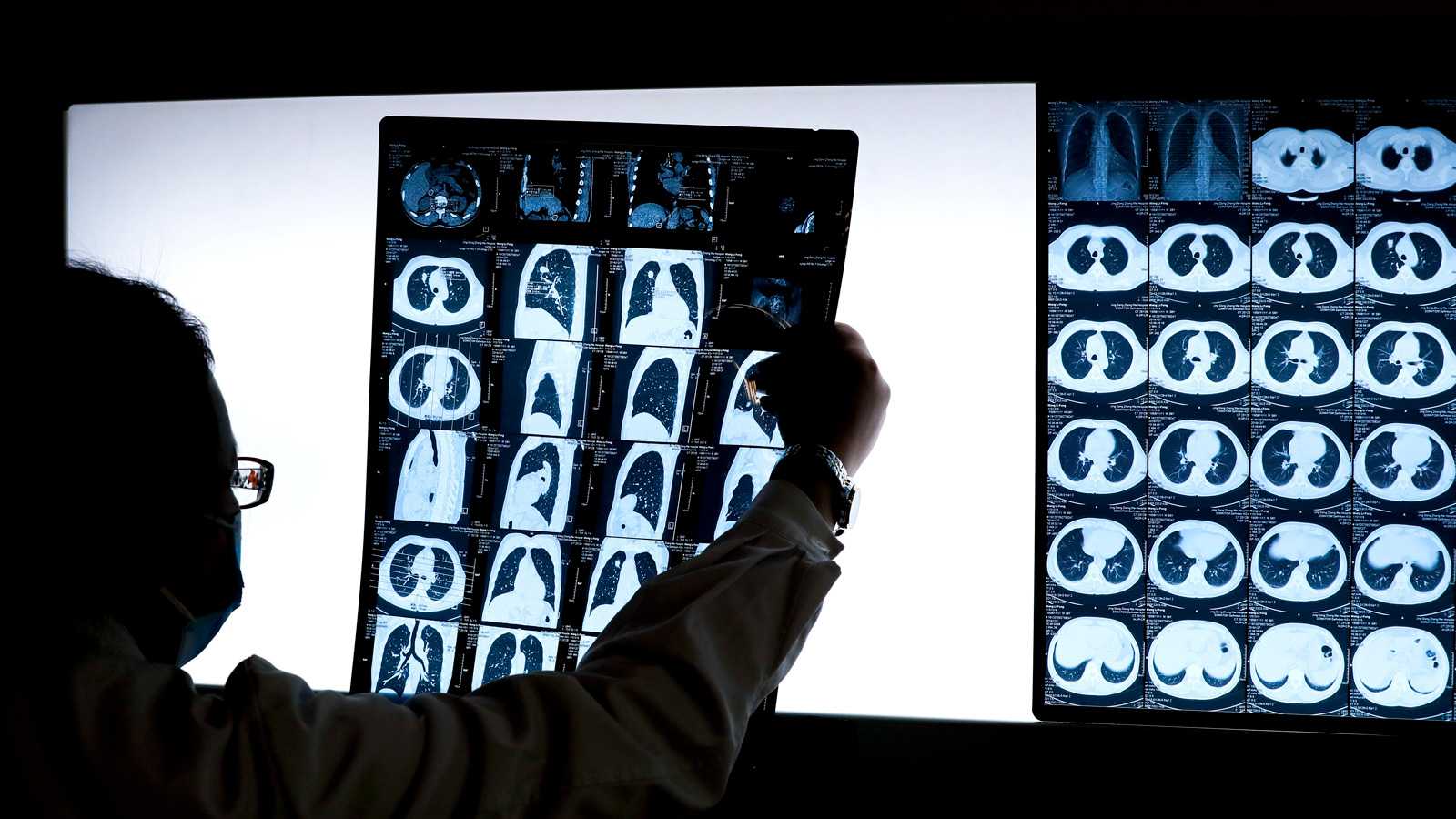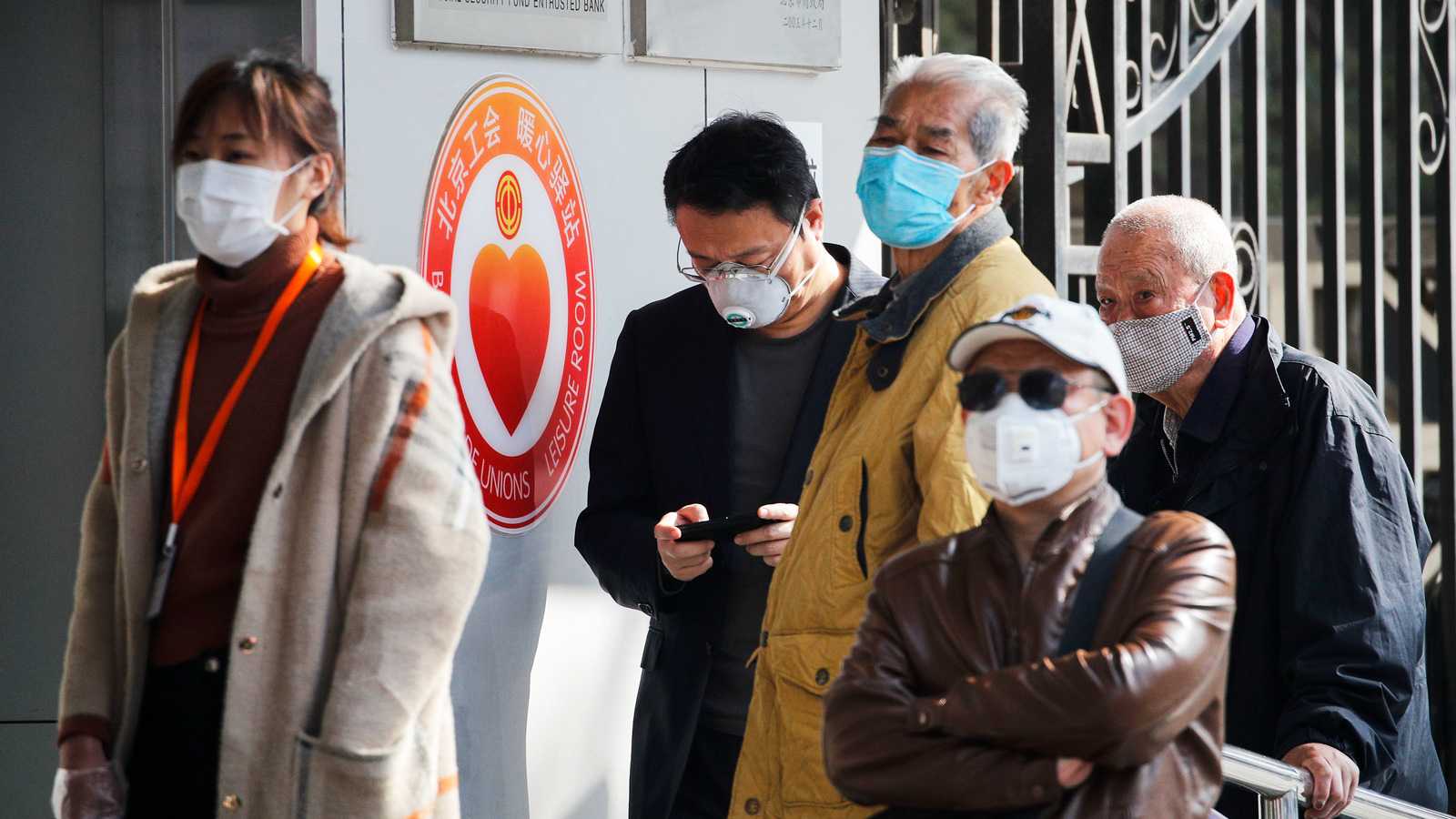one of the many memes that circulated on social media during the start of the novel coronavirus outbreak in china pictures a man wearing a blue surgical mask with a lit cigarette sticking out of a hole poked in the middle, allowing him to smoke. "when you care about your health but also don't care about your health," says the caption.
regardless as to whether the photograph is real or staged, it captured the attention of many because it conveys at least part of the present zeitgeist in coronavirus-hit china, as far as smoking is concerned.
china is the world's largest cigarette market. over 300 million people smoke, reported state news agency xinhua in october 2019; 740 million are exposed to second-hand smoke, it said in may 2018. the smoking rates among men and women were 50.5 percent and 2.1 percent respectively in may 2019, according to the chinese center for disease control and prevention.
"the virus actually hasn't changed my attitude (to smoking)," said kevin, 27 from anhui province in east china, who works in the media industry in beijing. "we have a safe space [in our workplace] so it's ok to do that," he explained.
as part of its healthy china 2030 initiative, the chinese government is working to reduce the number of smokers in the country. the aim is to decrease the national smoking rate for those aged 15 and above to 20 percent by 2030, according to the chinese center for disease control and prevention. in 2018 the rate was 26.6 percent, a drop from 27.7 percent in 2015, said the body.
but, it was cautioning against close contact with people who may have returned to china's capital from wuhan or other areas particularly affected by coronavirus, rather than an increased awareness of safeguarding lung health, that kevin mentioned regarding smokers' safety. "we are fine with the virus," thanks to precautionary measures, he said.

a woman takes a cigarette break by government banners along a street leading to tiananmen square in beijing, china, may 31, 2019. /ap
smoking to beat coronavirus
in mid-february, cctv posted a clip on its official weibo account in which an expert advised people not to smoke, particularly during the coronavirus outbreak. "smokers won't listen, trust me," said one comment which received over 12,000 likes. "my dad believes smoking could beat the virus," said another, with nearly 1,700 likes, requesting statistics on smokers with covid-19 to persuade him otherwise.
the belief that smoking is a defense against coronavirus has popped up elsewhere. one article that gained traction in mid-february, posted on a wechat public account, claimed that smokers were infected by coronavirus at a much lower rate than non-smokers.
it made this conclusion based on a research paper, but "china daily," as part of its "fact check" section, refuted the article's claim and described its conclusion as "a rumor taken out of context," pointing out that the author had misunderstood how representative the sample of patients behind the research really was. the newspaper cited a lung specialist saying that there had been no research showing that nicotine had an antiviral effect.

a security guard takes off his protective face mask as he smokes a cigarette on a street corner in hong kong, china, february 15, 2020. /ap
nonetheless, the idea that smoking is a defense against coronavirus is not new; it also circulated during the 2003 sars outbreak in china. a "south china morning post" article dating back to this time debunks the theory, citing a spokesperson from hong kong's department of health saying that smokers should give up the habit as it "weakens immunity, makes transmission of the virus from a person's hands easier and reduces protection since smokers must remove their facemasks."
covid-19, the disease caused by the novel coronavirus, is fatal in 2.8 percent of men and 1.7 percent of women, according to the chinese center for disease and control prevention. these figures could be linked to how much more widespread smoking is among men rather than women but this conclusion has not yet been proven: correlation does not necessarily mean causation.
but, an article published in the chinese medical journal on february 28 did list a "history of smoking" as a factor that leads to the progression of covid-19 pneumonia.

a doctor looks at a ct scan of a lung cancer patient in the town of yanjiao in north china's hebei province, december 8, 2016. /ap
how quarantine is changing smokers' behavior
no one cgtn spoke to had stopped smoking because of the coronavirus outbreak, though several said that they were trying to smoke less. there has been some chatter among netizens on chinese social media about quitting, whether it be to improve lung health or simply due to quarantine restrictions.
dasuan, 25, who works for an archery center in beijing, said that he had been smoking more because he was housebound with nothing to do but play video games and light up. on the other hand, one 22-year-old student doing an internship in shanghai said that he had been smoking less because he was unable to go out and socialize, when he could normally reach for a cigarette.
responding to cctv's weibo post about coronavirus and smoking, some commenters voiced their concerns about secondhand smoke, now more of an issue as smokers have been going outside less.

people wearing protective face masks wait in a queue for temperature checks before entering a bank in beijing, march 11, 2020. /ap
smoking in china is often perceived as macho, and also functions as a social lubricant. chinese cultural etiquette means that in social situations, smokers offer cigarettes to everyone else in their group if they choose to light up, and it is polite to accept. it is not unusual for cigarettes to be given as a gift at weddings from the bride and groom to their guests, or lit in place of incense.
chinese heritage plays a role in cigarette marketing, with brands associated with different areas of the country.
"i don't think public health education about smoking has permeated sufficiently into the chinese mainland yet, especially in rural areas," one china-based respiratory specialist told cgtn. "up to 10 years ago, senior officials openly smoked and in hospitals the chief and senior clinicians often smoked in their offices, so [there were] no role models – in fact to the contrary," he said.
cigarettes are cheap in china, and a pack of 20 can be bought for around 20 rmb (roughly 2.9 u.s. dollars), sometimes less. in beijing, it's possible to eat a filling meal for the same price. the price of a pack can reach approximately 100 rmb (roughly 14.3 u.s. dollars). these prices include heavy taxation.

chinese women perform in front of anti-smoking banners displayed on the bird's nest stadium to mark world no tobacco day in beijing, may 31, 2016. /ap
smoking cannot be advertised in china and anti-smoking campaigns do exist. cigarette packaging does not display the disturbing, visceral images of the negative health risks associated with smoking as it does in other countries such as the uk. "the cigarette trade is governed by a state monopoly," xinhua said in july 2017.
smoking is banned in public places, though this is by no means strictly enforced.
even so, "the younger generation is probably more aware" of the health risks, said the respiratory specialist.
additional reporting by le wang
videography by ding zhiyang
